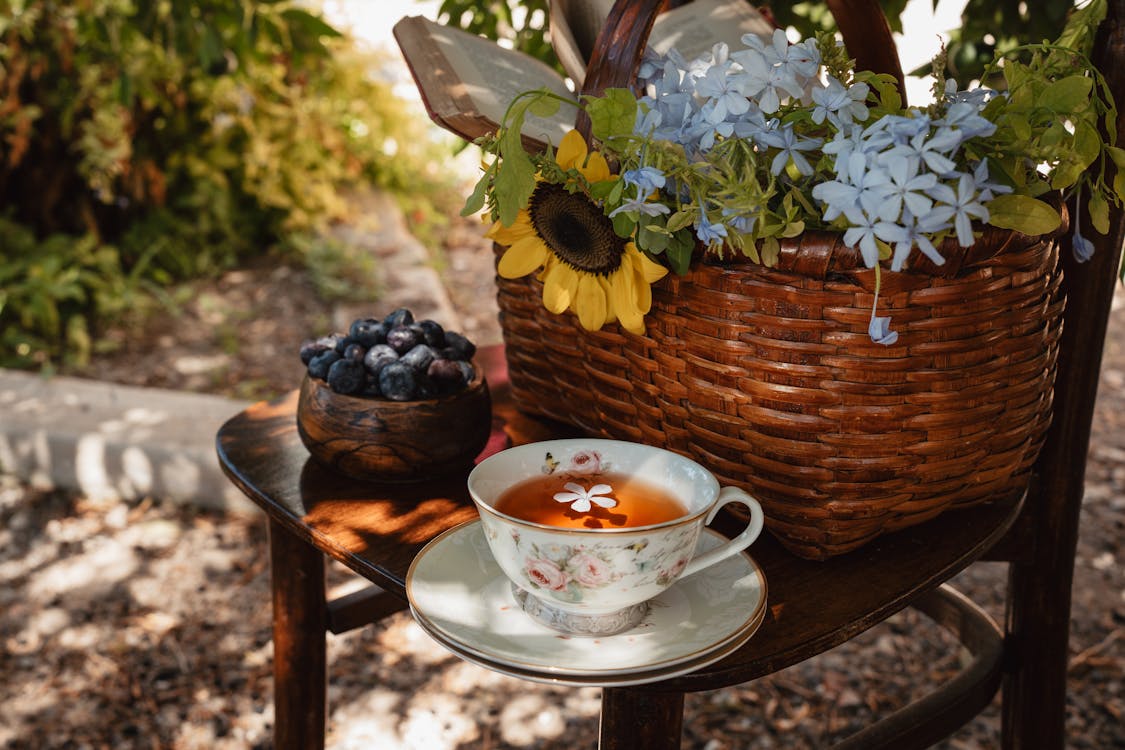The Fascinating History of Britain’s Love Affair with Tea
When you think of British culture, images of afternoon tea, delicate China cups, and the clinking of teaspoons may come to mind. Indeed, tea-drinking is an integral part of British life, woven into the very fabric of society. But how did this seemingly simple beverage come to hold such a significant place in the hearts of the British people? Hear a little more about The Fascinating History of Britain’s Love Affair with Tea.
The Arrival of Tea in Britain
Tea first made its way to Britain in the early 17th century, initially as a luxury item for the aristocracy. The earliest documented use of tea in England dates back to 1657 when it was sold in a coffee house in London. However, it wasn’t until the 18th century that it truly began to flourish. The East India Company played a pivotal role in importing tea from China, making it more accessible to the British public.
As tea gained popularity, it also became a symbol of social status. The aristocracy embraced it, hosting extravagant tea parties where they would showcase their wealth through elaborate tea sets and luxurious surroundings. The tradition of tea-drinking soon trickled down to the middle classes, becoming a common practice across all levels of society.
The Birth of Afternoon Tea
One of the most delightful traditions to emerge from Britain’s love of tea is the concept of afternoon tea. This ritual is often attributed to Anna, the Duchess of Bedford, in the early 1840s. At the time, it was common for people to have only two meals a day: breakfast and dinner. The long gap between meals left the Duchess feeling hungry in the late afternoon, so she began the practice of having a light meal accompanied by tea.
This habit quickly gained popularity among her friends, and afternoon tea became a fashionable social event among the upper classes. Today, afternoon tea is celebrated in many hotels and tea rooms across Britain, complete with a selection of sandwiches, scones, pastries, and, of course, a pot of freshly brewed tea.
The Cultural Impact of Tea
Beyond its delightful taste and ritualistic nature, tea has played a vital role in shaping British culture. It has fostered social interaction and conversation, often serving as the backdrop for discussions, friendships, and even political debates. The phrase “tea time” has become synonymous with taking a break, reflecting a slower pace of life and the importance of community and connection.
Moreover, tea has influenced language and expressions in Britain. Phrases like “not my cup of tea” and “steeped in tradition” are commonly used, highlighting the beverage’s cultural significance.
Tea and the Empire
The British Empire also played a crucial role in the tea trade, particularly in the 19th century. To counter the high demand for Chinese tea, the British began cultivating tea in India, particularly in Assam and Darjeeling. This shift not only altered the dynamics of the tea trade but also had lasting effects on the regions where tea was grown, impacting local economies and cultures.
The Legacy of Britain’s Love Affair with Tea
Today, tea remains an essential part of British life. Whether it’s a morning cuppa to kick-start the day or a comforting brew in the evening, the nation’s love for tea endures. According to recent statistics, the UK is one of the largest tea consumers in the world, with over 165 million cups consumed daily.
In a rapidly changing world, the ritual of tea-drinking continues to provide a moment of pause, a chance to connect with others, and a celebration of a time-honored tradition. From the grand tea rooms of London to the cozy kitchens of family homes, tea remains a quintessential part of the British identity.
Conclusion
Britain’s relationship with tea is a captivating tale of cultural evolution, social significance, and historical context. As we sip our Earl Grey or enjoy a classic English breakfast blend, we participate in a tradition that has shaped British society for centuries. So, the next time you raise your teacup, take a moment to appreciate the rich history behind this beloved beverage.


[…] Whether you’re a history buff or simply curious about England’s past, a visit to the Tower of London is an unforgettable experience. It invites you to walk through the corridors of time, where the echoes of history still resonate within its ancient stone walls. […]